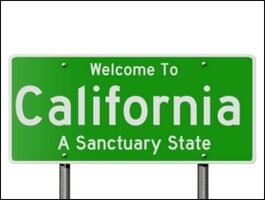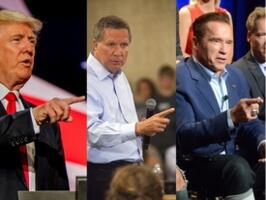Voters Place Importance on Amnesty Over Border Control
When it comes to immigration, voters want to take care of those brought here as children first, then focus on building a wall.

When it comes to immigration, voters want to take care of those brought here as children first, then focus on building a wall.

Members of the Congressional Black Caucus and a leader of the Women’s March are catching heat after information surfaced that they met with or appeared at events with Louis Farrakhan, a notorious anti-Semite.

President Trump tapped CIA Director Mike Pompeo to be his new secretary of State.

Following President Trump’s firing of Secretary of State Rex Tillerson, voters remain strongly convinced that a president’s Cabinet plays a critical role in governance, but most also agree that Trump doesn’t use his Cabinet like his predecessors did.

Congresswoman Maxine Waters constantly calls for President Trump’s impeachment and even suggests she may challenge him in 2020. But few voters think favorably of the California Democrat, and they look even less favorably on her support for slavery reparations for black Americans.

Students across the country are planning to participate in the National School Walkout for 17 minutes today to protest gun violence and honor the 17 victims of the shooting at Marjory Stoneman Douglas High School in Parkland, Florida one month ago today.

President Trump has agreed to meet soon with North Korean dictator Kim Jong Un, the first time a U.S. president has ever met with the leader of the rogue communist regime.

The U.S. Department of Justice is suing California over its actions to shield illegal immigrants from federal immigration laws.

Voters aren’t enthusiastic about living in a so-called sanctuary state and tend to favor the U.S. Department of Justice’s decision to sue California for protecting illegal immigrants from federal authorities.

Russian President Vladimir Putin announced last week that Russia has developed a nuclear weapon capable of beating U.S. and NATO missile defenses. Voters here aren’t particularly worried about a Russian nuclear attack, but they are more concerned these days about souring U.S.-Russia relations.

Oakland Mayor Libby Schaaf recently warned illegal immigrants in her city of a pending crackdown by federal immigration authorities, and federal officials now say that a number of violent criminal aliens escaped capture and deportation as a result.

Maine and Vermont are currently the only two states where a convicted felon can vote while he or she is still in prison, but with a new bill introduced in February, New Jersey may soon be added to that list. Most voters don’t feel that’s right, but Democrats and black voters are more receptive to it than others.

Ohio Governor John Kasich is joining with Arnold Schwarzenegger to champion a more centrist Republican Party, and Democrats think that’s a great idea. Republicans, however, are sticking with President Trump.

Most Americans think the death penalty is a fair punishment if the man accused of killing 17 people during a school shooting in Florida is convicted, and nearly half don’t think, in general, that leniency should be granted to suspected criminals if they are found to be mentally ill.

In the aftermath of the most recent school shooting in Florida, fewer voters have a positive view of the National Rifle Association (NRA).

If the presidential election were held today, President Trump would carry Republicans and unaffiliated voters, but Democrats would reject him in droves.

President Trump has imposed extensive new economic sanctions on North Korea to discourage that country's development of nuclear weapons. But voters are closely divided over the president's action, with politics as usual coloring the responses.

President Trump has threatened to pull border control enforcement agencies out of California because of the state’s refusal to enforce most illegal immigration laws, but voters aren’t sure that’s the best approach.

A proposal has been made to give bonuses to teachers who are specially trained to have guns in schools. Americans in general are torn about whether that’s a good idea, but a majority of adults with school-aged children like it.

While police officers continue to fall in the line of duty around the country, fewer voters now think there is a war on police.